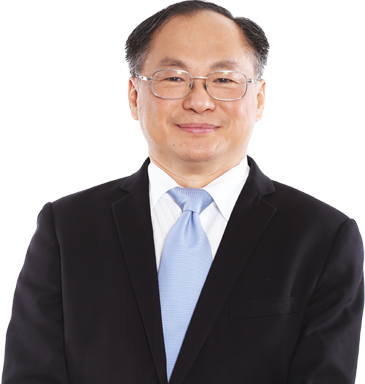October 2016
We started in 1987 when Thailand was in the early stage of national petrochemical development. This led us to enter the piping industry. As the oil and gas and petroleum industry in Thailand continued to develop in the 1980s and 1990s the opportunity for BTW to expand into fabrication materialised and finally in the late 2000’s modularization became a new industry for us to expand into utilising all the skillsets that BTW has developed in the past three decades.
What is BTW’s business model?
BTW has three major groups of business, modularization, parts fabrication and other services. Our customers are mainly EPC contractors for large-scale engineering projects and project owners in the mining, gas, petroleum and energy industries located in Thailand and in many continents such as Australia, Asia, Europe and America. Modularization is a production method used for large scale projects and it begins with the preliminary design, engineer, drawing, project planning and finally the fabrication process. This type of production requires high-level engineering standards as it includes structural works, piping systems, electrical systems, safety and tolerance under intensive high pressure conditions and extreme high or low temperature conditions. We are one of the leading providers in the country for piping works and are trusted by the Electricity Generating Authority of Thailand (EGAT) to continuously provide the piping system services for almost all of their power plant projects. As a result of our track record of quality and timeliness we now have a large backlog of about 1.6 billion baht at the end of the second quarter of this year.
Where are your facilities located?
We have two workshop facilities; one in Sattahip, Chonburi and the other in Chachoengsao. Our Sattahip Workshops has such a large area with 174,454 sqms., while the Chachoengsao Workshop has 89,716 sqms. area. In total we have a combined production capacity of up to 4,000 tons per month. Our main facility at Sattahip is adjacent to the Sattahip commercial deep-sea port. This ensures that we can produce and deliver the module units through the deep-sea port thereby reducing transportation costs when compared to other steel fabricators and there is no restriction from the road width, which gives us a strong competitive advantage over our peers in Thailand.
Why did BTW decide to list on the Stock Exchange of Thailand?
We become listed on the mai Stock Exchange because we wanted to ensure that we can continue to enhance the value for all of our stakeholders. Because we are listed we now have the ability to bid for larger projects up to USD 400-500 million contracts from the USD 200 million which was the largest we have done in the past because our capital base is larger. Also, our credibility as a firm has improved as the financial strength of BTW is more visible to potential customers. In addition to this we wanted to expand and invest in debottlenecking our manufacturing process to ensure that our efficiency rates are higher and that the schedule is shorter which is positive for our customers. Finally, financially we have been able to decrease our cost of funding substantially and these cost savings can be used to further improve our facilities and team further.
What differentiates BTW from its competitors?
The combination of our skillset and location advantages differentiate us from our competitors. Over the past three decades we have developed a very strong engineering and manufacturing team for this industry which allows us to meet the necessary technical requirements of our existing and potential customers. Location wise, we benefit from having our facility next to the Sattahip port as it reduces costs for our customers as all of the work to complete a project can be done within one location and finally by being located in Thailand the labour costs are more cost-effective.
What are the biggest risks facing your business?
We believe that revenue fluctuation is the biggest risk. As our major revenue is project-based and depends on made-to-order steel fabrication services according to the terms and conditions agreed in the contracts, our performance will vary with the number of projects awarded, project value, and work progress of the projects. Continuity of future projects awarded to us and revenue diversification are the key success measures to our revenue stability.
To mitigate such risk, we have pro-actively broadened our customer base in terms of geographic, industries, and project types. More importantly, we value our long-term relationship with our clients and illustrate this appreciation by providing them with great products and services. In addition to our core strength in steel fabrication capability, we continuously explore potential investments in heavy industries businesses such as renewable energy and power producer which can provide recurring income in contrast to a project-based revenue.
Where do you see BTW in five years from now?
Our vision for the next 5 years is to be Thailand’s major heavy industries player with continuous growth. We believe our core business of Modularization and Steel Fabrication will gradually return to its peak stage as global commodities prices such as gold, oil and coal keep increasing. Therefore, project investments in the mining, petrochemical, oil & gas industries should resume and boost demand for our Modularization and fabrication businesses. With our strengths in manufacturing expertise, deep sea port facility advantages, experienced high-skilled engineering and mechanic team and successful track records of delivering large-scale works on time for many world-class projects, we have gained trust of many global owners and EPC contractors.
With our financial strengths and public company credibility, we aim to expand into renewable energy or related industries. This strategy will not only create additional revenue stream but also produce recurring income and more stable profitability for our shareholders. At BTW, we look forwards to many exciting opportunities in the year to come.

